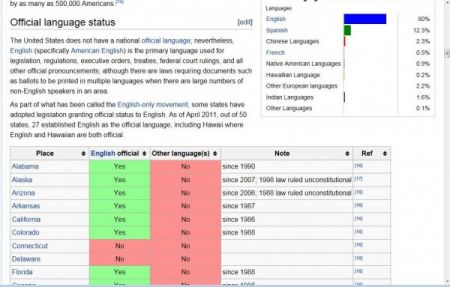It is delighting to see the youth in Malaysia getting better informed via various channels.
However, it is also worrisome that at times, they may step into wrong paths.
With different visions of life, different family backgrounds, different ambitions, the youth in Malaysia are showing their different colours.

But one thing for sure is that few of them like to see Malaysia as multicultural and multilingual.
Youth is a difficult passage. They are like green apples, nice to see but tastes sour when eaten. However, can we think of how to avoid future violence ? Can we think of how to live harmoniously and happily without conflict?
How can these be achieved ?
I read these words once in a forum: change, alter, revise.
The colonial poison is still affecting many Malaysians. How the British presented their language as elegant and elite has a great impact from the past till today. Yes, the impression of the English language we have was due to their control of information. Look at Wikipedia; you may be surprised to learn that only 27 states out of 50 American states recognise English.
That many Chinese families prefer to send their children to so-called English medium schools is evidence for the existence of this “English-phile” syndrome. They are willing to forgo their culture. They are willing to be”banana people”. They are willing to corporate with others to promote one single language in the country.
In fact, who created this concept of national language ? There are countries which do not use the term ‘national language’, but rather ‘common language’ or ‘official language’.
In the tropical part of the world where Malaysia is situated, 214* tribes span across the South China seas from the Straits of Malacca. Yet the people are gagged not to talk about sensitive issues. The ISA is waiting for you at the corner. Like you, I too do not want myself to incarcerated in a Kamunting cell, subject to perhaps even Guantanamo-style interrogation (even though the loyarburok team of lawyers can help to free me from suffering).
Now let us take a stroll down the memory lane to see how Indonesia decided on their national language. Pauuaw S (2009) in the paper ‘One Land, One Nation, One Language: An Analysis of Indonesia’s National Language Policy’ said that: “At the time of Indonesia’s independence, the Javanese made up 47.8% of Indonesia’s population, were by far the largest ethnic group, and made up a significant proportion of the educated elite.”
The theory of ‘majority wins’ did not at all translate into practice in Indonesia when they were deciding on a common language to dispel the Dutch, their colonial master of three centuries. According to Pauuaw, “The Malay language was the native language of less than 5% of the population at the time of independence.”
On the other hand, according to Montolalu and Suryadinata (2007), the figure is 1.61% . They said that in the 1930 census, although the Javanese made up more than 47.02% of the total population, the administrators decided to choose the Malay language – representing only 1.61% of the population – simply because the Javanese language is more difficult to learn compared to the Malay language.
The simplicity of Malay became the priority for consideration as the national language. A national language should take less time to learn and be easy for communicate among people in a multilingual setting. It is clear now that a simple language is the best choice for unity. It saves cost and time. Which is the easiest language to learn in the world now?
We have to be concerned about who wrote history: the victors or the Western policy makers? Even in the Pauuaw article, the writer kept mentioning that English is vital as he did not want to recognise that English is the language killer in the world.
Certainly in ASEAN, with the exception of Thailand having never been colonised by foreign forces, the other 10 countries were colonised by the Dutch, the French and the British. With the decline of the use of French, most people conclude that English is a must for success. Is that true?
Did the Russian and Chinese astronauts communicate with the ground controllers in English?
Shaking away the myth that English is elegant and elite is not easy. But if you have a heart for an equal society and fairness for all the people in the country, you can change, alter and revise the preconceptions you hold.
Now, Google has joined forces with other international organisations to protect minority languages. But in our homeland, there are youths who join forces to kill minority languages by supporting a one-language policy. Our orang asli languages are on the verge of disappearing but I hardly see a youth stand up to call for the protection of minority languages. Some of them even gladly declare that they don’t speak a word of their mother tongue.
Yes, it is the colonial poison that seeped into the minds of many who consider English as the most useful language. We fail to look just within the ASEAN region: how one can travel freely and comfortably by speaking English alone, when tourist areas or 5-star hotels are the only places where basic English can function minimally? My visit to Hanoi put me in a shock: neither English nor French were able to be used on the streets.
Are there no better ways of solving the language dilemma for the Malaysia of tomorrow ?
You know better why the leaders of the day – and certainly the leaders of waiting – would similarly feel that English is vital when in fact, English is in decline. More than 75% people of the world do not speak a word of English. Perhaps, by the time you are reading this data here, it has already gone up to 76%.
Would the Malay language be on the verge of disappearing, given the borrowing from many Latin langugaes? Perhaps this short film is telling the truth that the Malay themselves is killing their own mother tongue softly and gently.
[youtube]Rzqeamru0Mo[/youtube]
*Side note: I did not have the official number of races in Malaysia but I recall reading the figure “214 tribes” once in The Star Sabah. Later, it was deleted from The Star’s website. The population department does not have that kind of data. Perhaps, they are still trekking into the depths of the country for better sources of data. In China, all citizens know that there are 56 tribes: it is even in a song. But what is the population census board in Malaysia doing, when it cannot – or does not want to – publish the figure?


Yes, please write in any language and I would be able to read and understand. I've been to 100+ cities in the world and I've yet to see the world in a better perspective. It is all right if the book is not in Malaysian libraries. Do you know that is something called , the Internet? Talk about better perspective? I rest my case :-)
Oh no, to attack the English language with an article written in…English? Ironical!!!
Yeeism, simple, if I wrote it in Chinese, would you be able to read it ? English language is not only read by English but it is to many non English if you have read the article carefully, the banana Chinese. You need to see the world with a better perspective and I believe you have not seen a British condenming English as a dominated language. This book is not in the Malaysia library,too bad. You can purchase it if you like to. The author is the famous Dr Robert Phiilipson. The wikil page: He is perhaps best known for writing Linguistic Imperialism and English-Only Europe?:
Nice!
Dankon Pepper.